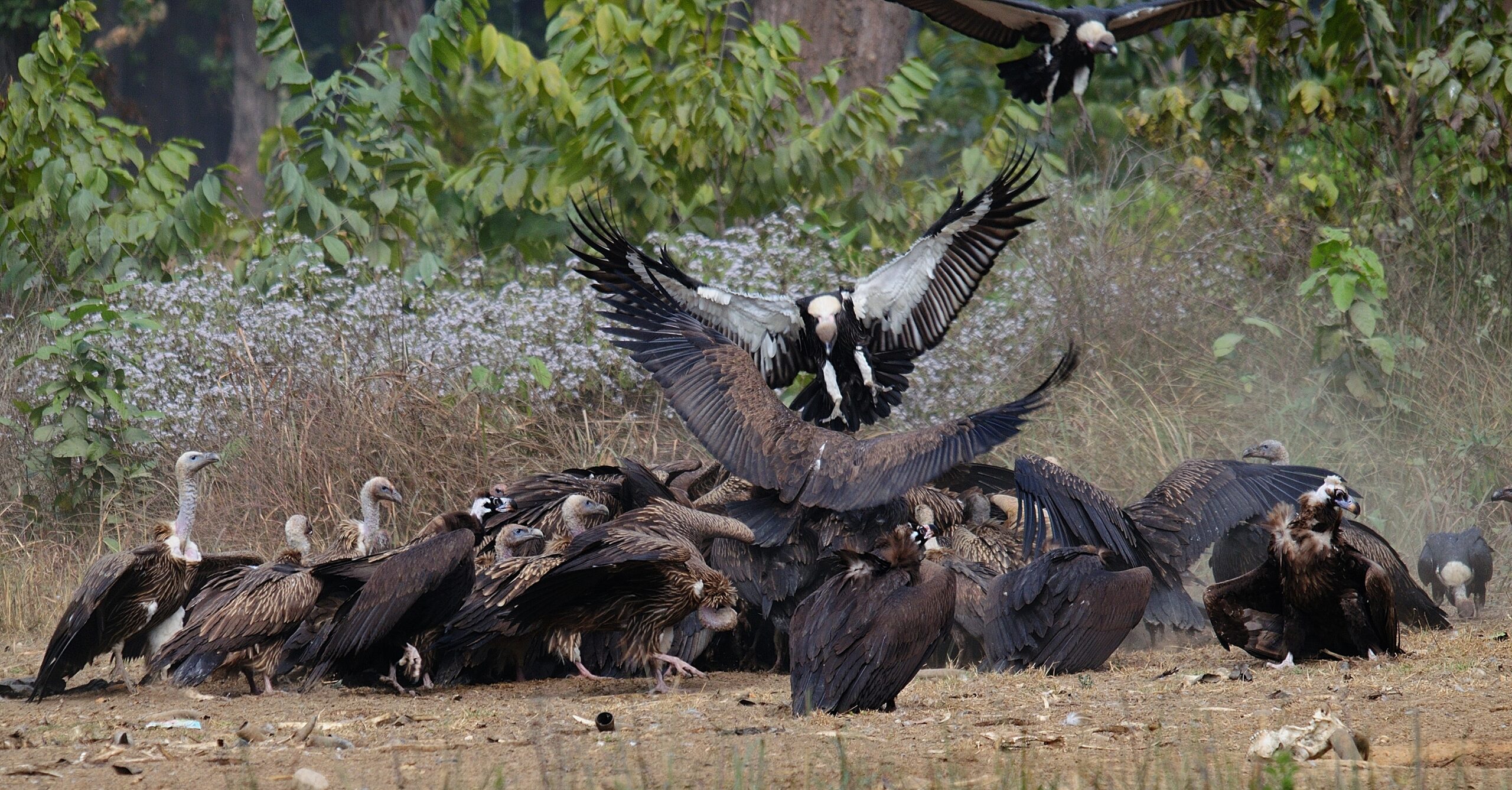Long maligned as harbingers of death, vultures are getting a new look from African conservationists who are working to save the critically endangered scavengers — and put a dollar value on the vital role they play in ecosystems.
A recent report from BirdLife International estimates that vultures contribute $1.8 billion annually to ecosystems in southern Africa, thanks to their ability to clean up carcasses, control pests, and even aid in anti-poaching efforts. The report comes at a critical time: Six of Africa’s 11 vulture species are listed as endangered or critically endangered by the International Union for Conservation of Nature.
Some vulture populations have declined by nearly 90%, said Fadzai Matsvimbo, an extinction prevention coordinator at BirdLife International. Conservationists hope the economic case for vultures will increase awareness among governments and the public.
Research conducted in Botswana, Zambia and Zimbabwe shows that a wake of vultures — the term for a group of feeding vultures — can strip a carcass in a matter of hours, preventing the spread of disease and reducing the number of pests like rats and feral dogs that often accompany rotting remains.
Vultures’ highly acidic stomachs allow them to safely consume carcasses infected with anthrax, botulism and other lethal bacteria and toxins, removing these dangers from the environment. This week, more than 50 hippos reportedly died from suspected anthrax in a reserve in the Democratic Republic of Congo, underscoring the need for natural cleanup agents like vultures.
“From a medical, veterinary and financial point of view, they are extremely important in the environment,” said Alistair Sinclair, general manager of VulPro, a vulture rehabilitation center in South Africa. “If vultures died out and diseases like foot-and-mouth increased, meat exports could be curtailed, supply chains disrupted, and farmers and the economy would suffer.”
Unlike other scavengers, vultures feed exclusively on carrion, making them uniquely susceptible to poisoning — either accidental or deliberate. Hundreds can die from feeding on a single poisoned carcass. Powerline collisions and killings for belief-based rituals also pose significant threats.
Kerri Wolter, CEO of VulPro, said some people believe vultures possess supernatural foresight because of their keen ability to locate the dead. As a result, vulture body parts, particularly the head, are used in traditional potions and charms.
Despite these challenges, rehabilitation efforts are showing signs of success. VulPro has rehabilitated nearly 700 vultures and released about 100 captive-bred individuals into the wild.
“We like to believe that we’ve had a significant impact on vulture populations, at least in South Africa,” Wolter said.
Both Matsvimbo and Wolter pointed to popular culture — especially films — for reinforcing vultures’ grim reputation.
“Hollywood hasn’t done vultures any favors,” said Matsvimbo. “But we’re working to rewrite the story — before it’s too late.”

